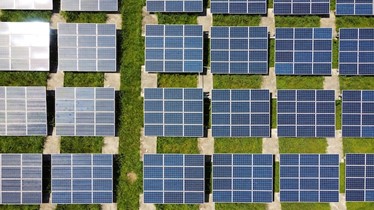Abe Issa is an entrepreneur in the solar and renewable energy sectors. In the following article, the new climate bill is discussed – and to better understand how the bill will affect businesses, Abe Issa explains its main points and discusses whether these measures are enough to halt the progression of climate change.
On August 16, 2022, President Joe Biden signed into law a sweeping package of legislation that will fight climate change after the bill received enough bi-partisan support to clear both the US Senate and House of Representatives. The legislation contains measures to lower the price of prescription medications, increase spending for Medicare, and—most importantly—cut taxes for businesses within the renewable solar energy sector.
The exact contents of the bill will help to increase investment within the renewable space and add financial support for an already growing infrastructure of renewable energies.
New and Extended Tax Credits for Renewable Electricity Manufacturers
The new bill includes a number of tax credits that will incentivize businesses to increase their production of renewable electricity. For example, Abe Issa explains that existing credits for wind facilities and solar photovoltaic (PV) systems have been extended through at least 2032, with many expecting the credits to continue past that date until carbon emissions are lowered to below 2022’s levels.
These tax credits are significant because they will reduce the cost of renewable energy production, making it more affordable for businesses to switch to cleaner forms of energy. Additionally, the extensions give businesses the stability they need to make long-term investments in renewable energy. Abe Issa says that the tax cuts are expected to cost the government around $62.7 billion and earn the industry more than
$113 billion in revenue.
New Tax Credits Will Help Nuclear Power Plants Stay Online
Nuclear power plants provide around 19% of the electricity in the United States, but many of these plants are nearing the end of their operational lifespans. The new bill provides $30 billion in tax credits to help nuclear power plants stay online, which is important because these plants produce zero carbon emissions.
The tax credits are significant because they will reduce the cost of nuclear power production, making it more affordable for businesses to keep these plants online according to Abe Issa. Additionally, the bill will cut costs by $0.30 multiplied by each kWh of electricity produced, helping to further fund research and development of new nuclear technologies.
Although the bill is unlikely to encourage the development of new nuclear power plants, it will help to scale up their electrical production and offset the nation’s dependence on carbon-based fuels according to Abe Issa.
 Individual Tax Cuts Will Encourage Citizens to Retrofit Their Homes and Invest in Green Technology
Individual Tax Cuts Will Encourage Citizens to Retrofit Their Homes and Invest in Green Technology
The bill also includes a number of tax cuts for individuals, which are designed to encourage citizens to adopt green technology and make their homes more energy efficient. For example, the bill includes a 30% tax credit for homeowners who install solar PV systems, and a
$7,500 tax credit for those who purchase new electric vehicles.
These tax cuts and rebates are significant because they will reduce the cost of renewable energy production for homeowners, making it more affordable for them to switch to cleaner forms of energy. Additionally, Abe Issa says that the bill will encourage citizens to invest in green technology, which will create jobs and help to grow the economy.
The bill’s cuts are expected to cost the government around $59 billion but the returns for individual citizens will likely make their way back into the economy and help encourage growth at a macro-level.
Direct Funding for the Expansion of Energy Infrastructure
In its most direct show of support for businesses within the renewable sector, the package of legislation includes $6.8 billion of direct funding for programs supporting the expansion of energy infrastructure. This funding will be used to expand the nation’s electric grid, build new transmission lines, and upgrade existing infrastructure to accommodate more renewable energy.
This direct funding is significant because it will help absorb the cost of renewable energy production, making it more affordable for businesses to switch to cleaner forms of energy. Additionally, the bill will create jobs and help to grow the economy by shifting away from outdated energy production according to Abe Issa. The exact dollar amount of growth is currently unknown, but this signals the largest single investment in renewables to date.
The Bottom Line
Abe Issa explains that the new climate bill includes a number of measures that will incentivize businesses to increase their production of renewable electricity. The most significant of these is the extension of tax credits to offset costs of energy production. Although the bill will cost the government roughly $320 billion, the shift in funding towards new industries will certainly pay off on a national level.
 Individual Tax Cuts Will Encourage Citizens to Retrofit Their Homes and Invest in Green Technology
Individual Tax Cuts Will Encourage Citizens to Retrofit Their Homes and Invest in Green Technology